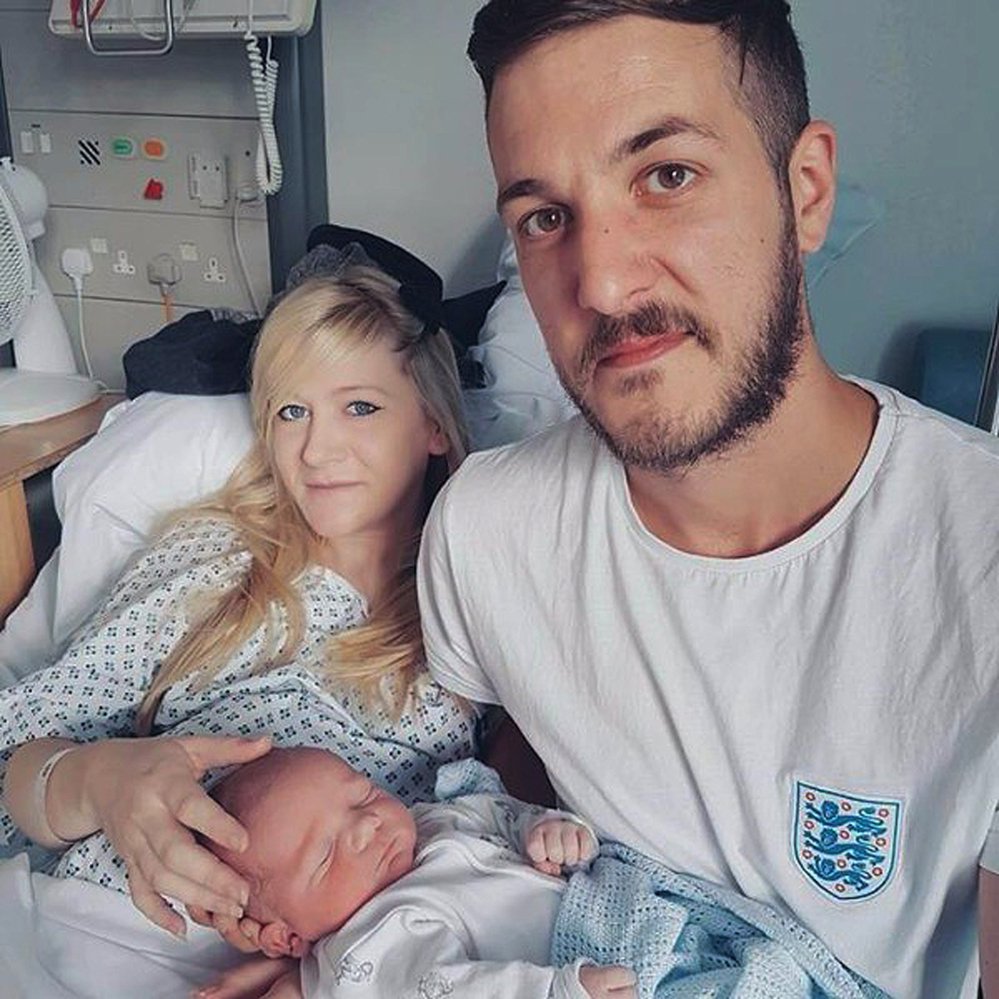For months, Charlie Gard’s parents have been fighting for his life.
Charlie has a rare genetic condition and resulting brain damage that has robbed him of his ability to move his arms and legs, eat or breathe on his own. The 10-month-old has been connected to machines to help keep him alive.
But Friday, his parents, Chris Gard and Connie Yates, said their son will be disconnected from life support at the Great Ormond Street Hospital for Children in London.
British courts decided Charlie should be allowed to die after a heartbreaking legal battle in which doctors asserted that the child had no chance of survival, and Charlie’s parents argued there was an experimental treatment in the United States they had not tried. The case was taken all the way to the European Court of Human Rights, which declined to hear the case Tuesday, upholding previous court rulings that it was in Charlie’s best interest to withdraw life support.
Now Charlie’s parents say they are not even permitted to take him home to die.
“He’d fight to the very end, but we’re not allowed to fight for him anymore,” Gard said Thursday in a video statement. “We can’t even take our own son home to die.”
Charlie’s parents said that since November, they have been talking with medical personnel at the hospital about their son’s end-of-life care. One option was to let Charlie die at home.
“So we chose to take Charlie home to die,” his mother said in the video posted on YouTube. “And we have said this for months that this is what we want. That is our last wish, if it went this way – the way it’s gone. And we’ve promised our little boy every single day that we will take him home because that is a promise we thought we could keep.”
Charlie’s father said in the video that they want to take their son home and give him a bath, cuddle with him on the couch and let him rest in a crib he has never slept in.
“We’re now being denied that,” Gard said. The parents said hospital personnel told them they could not arrange transport for Charlie and, when the parents offered to pay for it, the parents said hospital personnel told them that was not an option.
Charlie was born in August with a rare genetic condition called infantile onset encephalomyopathic mitochondrial DNA depletion syndrome, or MDDS, according to court records.
England’s National Health Service describes the condition this way: The term depletion refers to the markedly decreased amount of mitochondrial DNA found in muscle, liver and brain tissues in these disorders. These are severe disorders presenting in early infancy or childhood with profound weakness, encephalopathy, seizures and liver failure. Weeks after birth, Charlie was struggling to hold up his head and was not gaining weight. At the two-month mark, he had become lethargic, and his breathing had become shallow, according to court records.
Send questions/comments to the editors.



Success. Please wait for the page to reload. If the page does not reload within 5 seconds, please refresh the page.
Enter your email and password to access comments.
Hi, to comment on stories you must . This profile is in addition to your subscription and website login.
Already have a commenting profile? .
Invalid username/password.
Please check your email to confirm and complete your registration.
Only subscribers are eligible to post comments. Please subscribe or login first for digital access. Here’s why.
Use the form below to reset your password. When you've submitted your account email, we will send an email with a reset code.